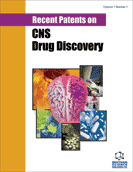Abstract
The present paper summarizes experimental and clinical data suggesting the therapeutic potential of the prototypic GABAB receptor agonist, baclofen, for the treatment of alcohol-use disorders (AUDs). Numerous studies have reported baclofen-induced suppression of alcohol drinking, relapse-like drinking, and alcohol reinforcing, rewarding, stimulating, and motivational properties in rats and mice. The majority of clinical surveys conducted to date have demonstrated the capacity of baclofen to suppress alcohol consumption, craving for alcohol, and alcohol withdrawal symptomatology in alcohol-dependent patients. More recently, the discovery of a positive allosteric modulatory binding site, together with the synthesis of in vivo effective ligands, provided a new tool for pharmacological manipulations of the GABAB receptor. Accumulating lines of preclinical evidence suggest that positive allosteric modulators of the GABAB receptor (GABAB PAMs), such as GS39783, display a high therapeutic index and retain baclofen’s capacity to suppress alcohol consumption and alcohol reinforcing and motivational properties. The present paper also summarizes the most relevant patents on GABAB receptor agonists and GABAB PAMs as possible pharmacotherapies for AUDs.
Keywords: Alcohol-use disorders, animal models of alcohol dependence, baclofen, GABAB receptor, GS39783, positive allosteric modulators, Targeting the GABAB, GS39783, Alcohol Drinking
 9
9

